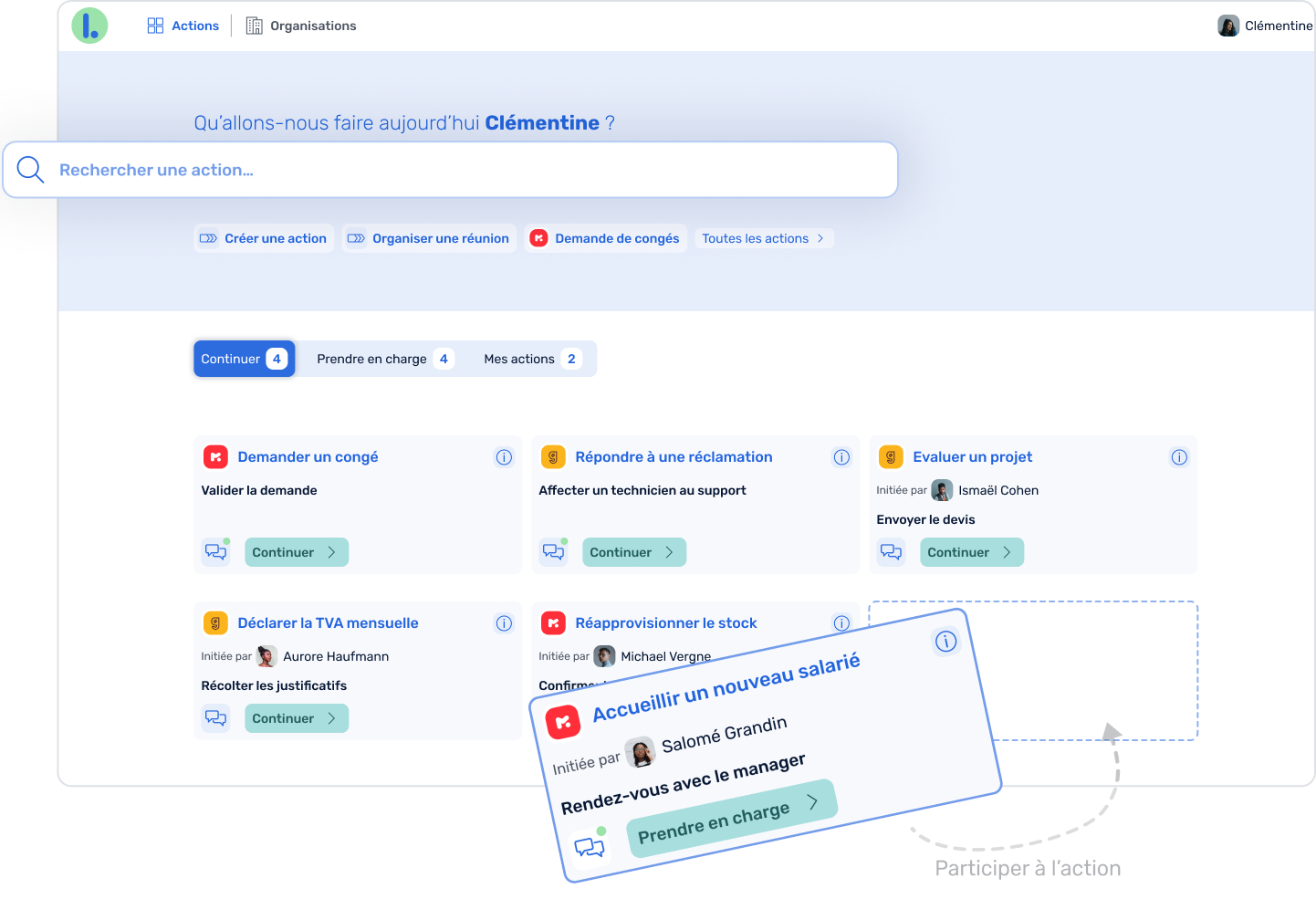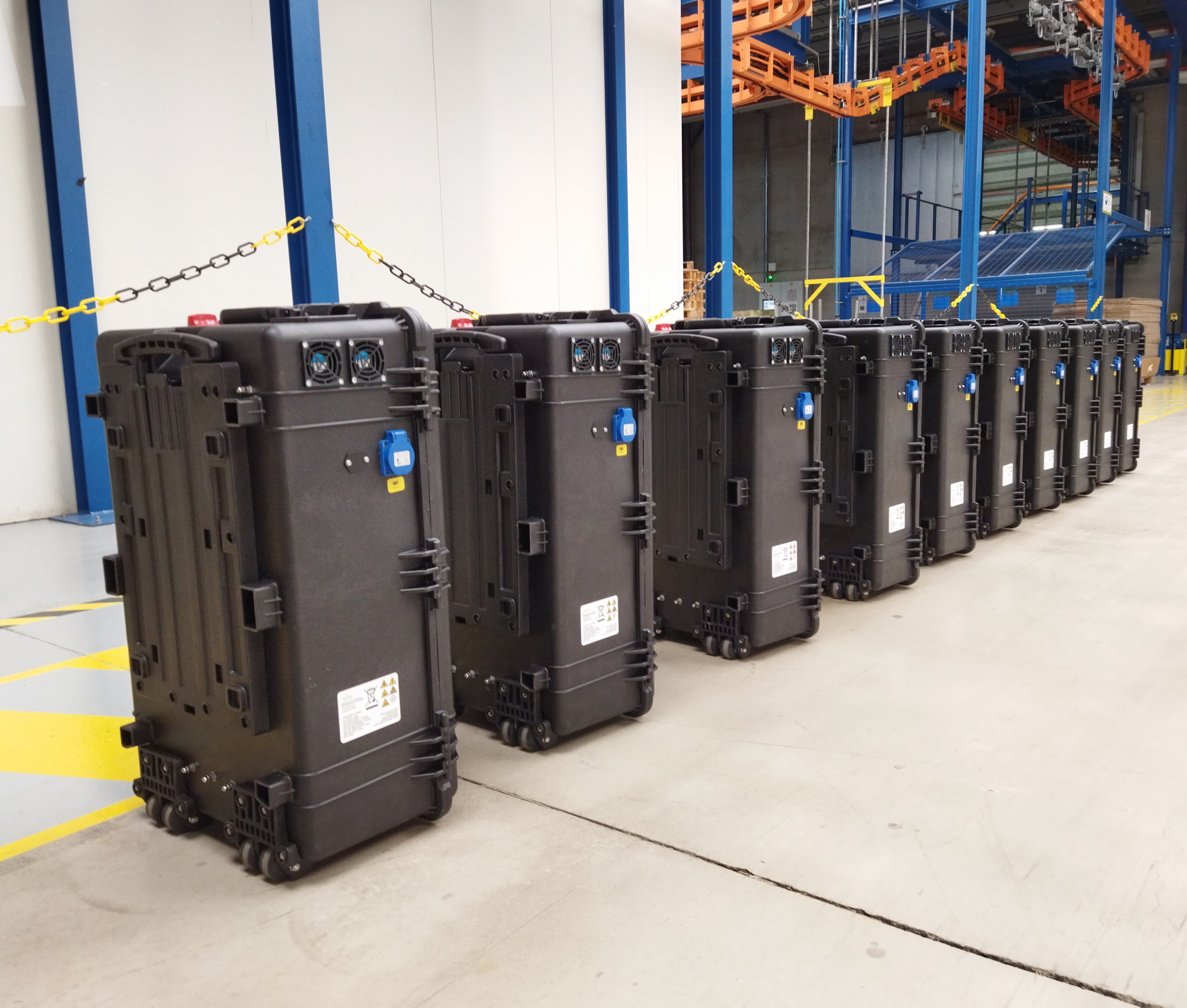Lapala: a no-code platform to help SMEs digitize everyday tasks
A company’s everyday operations are often full of recurring tasks: selling a service, requesting paid time off, buying equipment, to name just a few examples. The start-up Lapala, incubated at IMT Atlantique and present at VivaTech 2023, allows SMEs to digitize these processes. The aim: help them go digital, save time and keep their teams motivated.
Although going digital is an important issue for all companies, such a major transition is a greater challenge for some than for others. SMEs in particular do not always have the necessary expertise or the budget needed to achieve such a wide-ranging transformation.
“These organizations have three main options for digitizing their business,” says Kévin Sennoun, CEO of Lapala, a start-up incubated by IMT Atlantique on its Rennes campus. “First, they can work with a big, generalized ERP (Enterprise Resource Planning), like SAP or Oracle. But setting up this kind of software is usually complicated and poorly suited to each user. So, it’s far from an ideal solution for SMEs.” The same is true of the tailored development option via a service provider or in-house hiring, which is often ruled out due to the costs involved.
However, there are ERPs that specialize in a certain sector. “But, in general, they’re still pretty rigid and do not always align with an SME’s business vision,” says Sennoun. “So, it’s up to the company to adapt to the tool, which rarely works out.”
For lack of a better solution, organizations therefore have little choice but to make do with sheets of paper, Excel, and a few independent software programs – “an option frequently chosen by SMEs, even though it’s far from optimal,” as the CEO of the start-up says. Such a system means that data must be entered manually several times, which is not only time-consuming, but may also lead to errors and emissions. This presents an array of risks for companies: loss of time, reduced efficiency, disengaged teams, unsatisfied customers, legal consequences and more.
Identifying and digitizing business processes
That is where Lapala comes in, to help SMEs overcome their lag in digital transformation compared to major corporations. “We believe that the best way for SMEs to think about digitization is achieving a transition, instead of a revolution that will shake everything up,” saysSennoun. “These companies are also allowed to have their own way of doing things and software that adapts to their needs, instead of the other way around.”
Lapala’s solution takes the form of a no-code platform – meaning it can be used without coding in a computer language – and has three main focuses. First, it allows SMEs to easily create and manage business processes. “Most companies’ work can be broken down into a set of processes,” explains the CEO of the start-up. “Each process comprises different steps, several participants and diverse data sources. For example, purchasing new equipment involves filing a request, waiting for it to be approved by a manager, sending the invoice to accounting, and so forth.” Lapala allows organizations to digitize their processes on the platform: they may then be activated by any user with the appropriate authorization. Going back to the previous example, an employee can use the tool to request new equipment, indicating the desired product reference online. Their request then reaches their manager, who needs to simply click on it to approve or reject it. If it’s approved, it’s automatically sent to the purchasing department, who can place the order and then send the invoice to accounting. The whole process takes just a few clicks.
These processes may, of course, be specific to each company. However, the start-up can provide templates that may be directly used and configured by SMEs. To do so, it has broken processes down into a set of components, each of which corresponds to a step and may be reused individually. “We’ve also optimized data source management by developing generic processes,” adds Sennoun. “To make them operational, they must simply be connected to the right source when they’re set up at the SME.“
Fostering interaction between software – and between individuals
Lapala also makes it possible to interconnect the tools needed to carry out a business process. The solution serves as an integration platform, by interfacing with the various software programs already used by the company. All data provided by a user automatically circulates between the applications involved, thereby avoiding multiple entries, duplication and the risk of errors. This way, independent tools like Excel, CRM and invoicing software can “work” together by sharing their information in real time.
The “connectors” developed by the start-up play this intermediary role. At present, Lapala can interconnect with the Office suite – including Excel, which is widely used by SMEs – and Google, as well as Dolibarr, an open-source ERP that offers various functional bricks, such as invoice management. Moreover, the company has developed generic connectors that can interface with a great number of APIs on the market, which generally comply with standards. Lapala can also adapt to an SME’s needs by developing specific connectors for the tools it uses in its everyday work.
Lastly, while the start-up fosters digital transformation, it does not intend to neglect the human dimension of collaboration. “We not only foster interactions between tools, but between individuals too,” says Sennoun. “Within a process, when one person needs to talk to another, Lapala puts them in touch and encourages them to engage in discussion via the platform.” A way to put humans at the center of the process, setting Lapala apart from other automation tools, such as Zapier and Make, and traditional BPM (Business Process Modeling) software, like Nintex and ProcessMaker.
Towards “AI-pala”
Lapala’s solution is already implemented by its first customers, in industry and services including accounting firms. “Although companies don’t always realize it, part of their work can be standardized, since the same questions come up all the time,” says Sennoun. Lapala teams are often called on to help them detail their processes and thereby speed up the digitization of their business and offerings.
Nevertheless, the platform is intended to be used as is, without additional support. The company therefore plans to intensify its online marketing. “We’re in the middle of a funding round, to strengthen our technical and marketing teams,” says Clément Pansard, who is in charge of strategic partnerships for the start-up. “And at the same time, we’re seeking new partners, who can contribute knowledge about certain businesses and scientific expertise.”
And to make SMEs more independent in their use of Lapala, the start-up is turning towards artificial intelligence. It is working on an interface similar to ChatGPT, which will be able to generate corresponding processes based on a request expressed in natural language – or respond to a user’s needs in any other way. “The process is not an end in itself,” says Sennoun. “Our ultimate goal is to create a complete intelligent assistant for the businesses of today and tomorrow, to help them work and collaborate better on a daily basis, using all the technology available to us, which includes artificial intelligence.”
Bastien Contreras.













Leave a Reply
Want to join the discussion?Feel free to contribute!